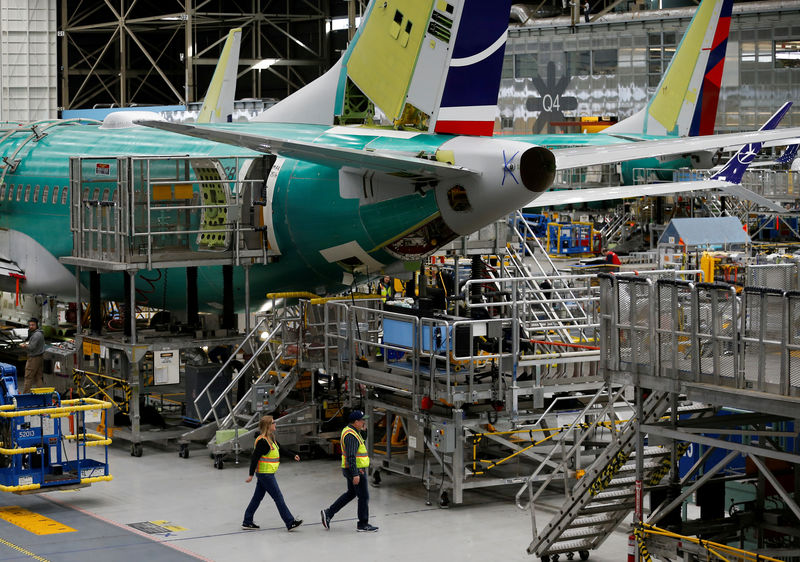By Allison Lampert
MONTREAL (Reuters) - Global regulators will meet in Montreal next week to review pilot licensing requirements, the U.N.'s aviation agency said, as part of a discussion that has gained urgency following two fatal crashes of Boeing 737 MAX aircraft in the past year.
It is the first time that the International Civil Aviation Organization (ICAO), which sets global standards for 193 member countries, will undertake such a broad review on training requirements.
While the meeting was not called in response to the MAX crashes in Indonesia last October and in Ethiopia in March, it coincides with a larger debate on whether increasingly automated commercial jets are compromising pilot skills. The 737 MAX has been grounded worldwide and could not be back in service for months yet.
Most attention surrounding the two 737 MAX crashes that killed a total of 346 people focuses on suspected flaws in an automated stall-prevention system called MCAS, which Boeing Co (N:BA) implemented to make the MAX perform like previous 737 models.
But the training given to pilots to allow them to handle such problems smoothly is also under scrutiny, expanding an industry debate over pilot skills that has been raging for years as crew spend less and less time flying aircraft manually.
"Recently, with current events, people are discussing whether the minimum requirements or experience are still valid,(or) should we review that?" ICAO's chief of operational safety Miguel Marin told Reuters.
In addition to regulators, representatives of a global pilots group are expected to attend the July 8-12 meeting, Marin said. Marin called the meeting a "first step," with any eventual change up to regulators.
In the United States, the Federal Aviation Administration increased the number of required training hours for commercial pilots from 250 to 1,500 in 2013, a move that some players have criticized as excessive, particularly as the industry grapples with future pilot shortages.
At the Montreal meeting, regulators will discuss flying hours and competency-based training, where pilots demonstrate skills like landing an airplane, as opposed to focusing on learning to fly and accumulating hours regardless of aircraft type.
ICAO's multi-crew pilot license created in 2006 focused on competency based training, where pilots need 240 hours to become first officers on a single aircraft type.
"What we're seeing in highly-automated aircraft, it's not how to manage the airplane if things are OK. It's those unexpected malfunctions that throw the airplane off," Marin said.
"We think that can only be addressed with a different type of approach to training rather than just saying, give them more hours."
